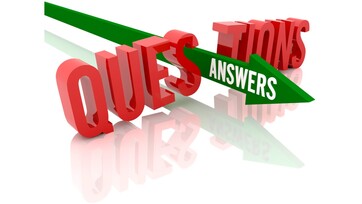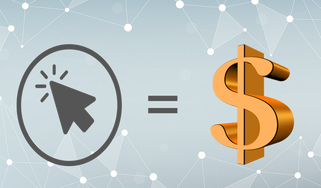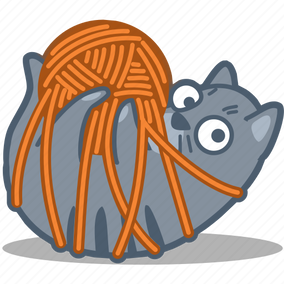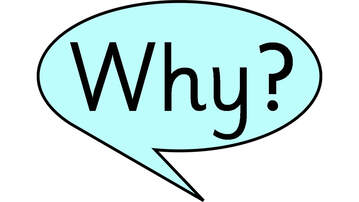 Measurement is the poor relation of marketing. While Indie authors may come to realise that they have to market their books, they don’t always realise the essential role that measurement plays in their decision making. Not knowing how to use measurement in marketing is like walking blindfolded through a room barefoot, with the floor covered with Lego bricks. At some point you are going to say “Ouch, that hurt.” Now, you may think that there is only one measurement that is worth looking at, and that is sales. But you would be wrong. To tell you why, I’d like to present you with a hypothetical scenario.  Let’s say that an Indie author has spent £100 on advertising in a month. They split that 50:50 between Amazon Ads and Google Ads. They have made sales and made a profit on their advertising, so they want to re-invest some of that profit into more advertising.
With that 3rd bullet goes supplementary questions – should they keep the split 50:50 or should they spend more on one platform than the other? The only way to make a sensible decision is to analyse the data and see what it is telling them. What the author needs to know is how many clicks each ad got, how much each click cost them and how many clicks were converted to sales.  To give you a real life example, we recently ran a Google Ad for one of our titles. According to the data we got a lot of clicks on the ad, so you might think that it was a success. However, there was no change in sales volume for the book. If the clicks had been converted into sales, there should have been a corresponding rise in sales volume. Only by putting the two sets of data side-by-side could we see that. The next month we ran an Amazon Ad for the same book. We didn’t get nearly as many clicks as we got for the Google Ad, but we did get a rise in sales. Not only did Amazon Ads tell us how many clicks got converted to sales, we could see it in our KDP sales data as well, in terms of increased sales volumes compared to the previous month. So, going back to our hypothetical example and the 4 questions (plus supplementals) we asked, we might well decide to spend all our budget on Amazon Ads and none on Google Ads. The data was telling us that, so we have no reason to doubt our decision making.  But the story doesn’t end there. If we were getting so many clicks from Google Ads, why weren’t they getting any conversions into sales? Normally we would say that it has something to do with the book’s blurb, the reviews or the free sample. Maybe they weren’t enticing enough. But if that were the case it would apply to the Amazon Ads as well, which we know wasn’t the case. So, we have to look for different answers. When we drilled down into the data, we discovered that the majority of the clicks we were getting were from outside of the UK. The book is on sale everywhere, so that shouldn’t make a difference, but perhaps it was. The book is very UK centric in its story. Perhaps that put other nationalities off buying it. We can’t be certain of that, but it is borne out by our KDP sales data. 98% of our sales for that title are made in the UK and Ireland. Again, we were putting data side by side in order to interpret it.  Above, we mentioned the need to understand how much each click cost us. That is essential information, because if we don’t know that we can’t know if our ad generated a profit. Let’s say we got 100 clicks and made 10 sales (that’s a fairly typical conversion rate for a new author). That sounds good, doesn’t it? According to Amazon Ads those sales would be worth £59.90 gross if the book sells at £5.99. Cause for celebration, perhaps? Actually no. Those 10 sales may have been valued at £59.90 gross, but may only have yielded £30 in royalties. If those 100 clicks cost us £35 (again, a typical cost based on 35p per click) then our ad campaign didn’t make a profit, even though it made sales. It made a loss of £5. And don’t forget that £35 is the pre-tax cost. If you are in the UK you have to add 20% VAT to get the final cost. Maybe we would need to re-think whether or not to spend our advertising budget with Amazon Ads too! Again, we have to put data side by side to interpret it and the data may have to come from different sources, eg both Amazon Ads and KDP.  Now, I’m not saying advertising doesn’t work, because it does. What I am saying is that we have to use all the available data to measure the effectiveness of our advertising. If you are spending £100 (after tax) on advertising and you are making £101 in royalties, then whoopee. You are in profit. But you have to know that and that means measuring what you are doing. So far we have only talked about paid advertising. What about social media?  Indie authors spend a lot of their time on social media promoting their books. It isn’t costing them anything except time, so no need to worry, is there? Actually, as the old saying goes, time is money (Benjamin Franklin). All the time you are on social media promoting your books, you aren’t writing new books which could make you more money. So, time has an associated cost. It is therefore necessary to work out if the time you spend promoting your books through social media is actually time well spent. Social media sites provide data on how many people have interacted with a post. That could mean a “like” or a reply, or it could be a click on a link. The more interactions there are, the more likely it is that they will convert into sales.  So, if your posts aren’t getting interactions, you need to know why, because to continue what you are doing is just going to waste your time. If you always do what you always did, you’ll always get what you always got. This may mean asking other people what they think of your posts, so you can work out what is most likely to get an interaction. Also, you need to “benchmark” against posts that get a lot of interactions to see what it is about them that makes them so attractive.  Of course, we mean posts that promote books. Knowing that posting a video of a cute kitten playing with a ball is going to get lots of interactions, isn’t going to help you to sell any books. Lots of authors think that asking questions on social media and getting a gazillion answers is interacting. It isn't. yes, the post gets a lot of responses - but is it selling books? If it isn't selling books it is just wasting time. So, some of the data that has to be compared are interactions compared to books sales. Do they line up. If not, why not? But knowing that a video gets more interactions than a still image might also be useful to know.  But with measurement you must always ask the question “why”. - Why aren’t my posts getting interactions?. - Why aren’t interactions on social media converting to sales? - Why aren't my video clips getting more interactions? Etc. I can’t answer those questions for you in a blog. I can’t even think up all the questions you might want to ask. But there will be answers. You just have to go looking for them. Social media sites provide all that data for free. All you have to do is use it. Measurement and data analysis isn’t very exciting stuff. But using it wisely can make your book sales very exciting. But, like all of book marketing, you have to invest time into it to get the best out of it. But it could help you avoid those Lego bricks. If you have enjoyed this blog, or found it informative, then make sure you don’t miss future editions. Just click on the button below to sign up for our newsletter. We’ll even send you a free ebook for doing so.
0 Comments
Leave a Reply. |
AuthorThis blog is compiled and curated by the Selfishgenie publishing team. Archives
June 2025
|
 RSS Feed
RSS Feed